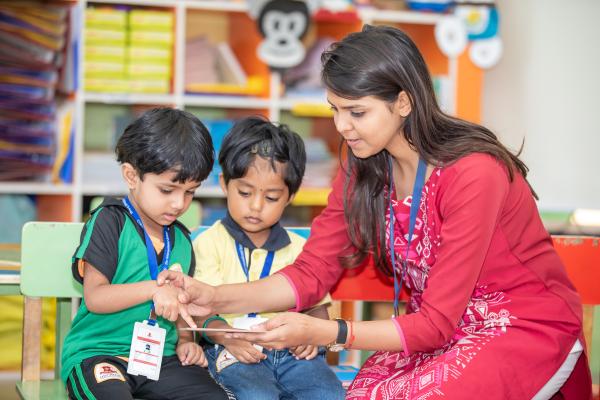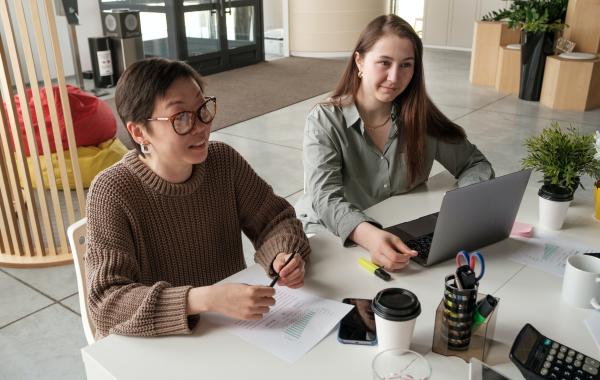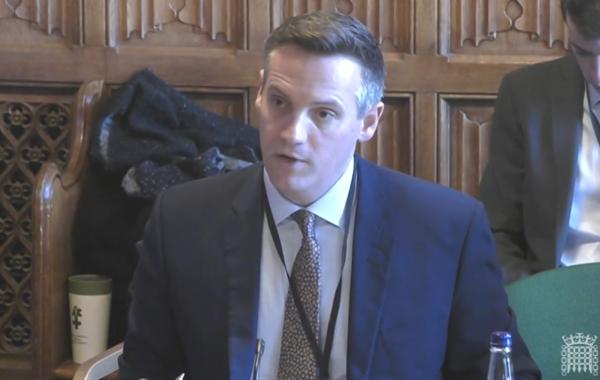National Numeracy has revealed that of the 11,000 trainee teachers using the charity’s online skills and confidence building tool, the National Numeracy Challenge, 43% are either low in maths skill, low in maths confidence or both.
In addition, 31% of those trainee teachers gave a negative word - such as nervous, anxious, worried, confused and panic - when asked to describe how they feel about maths.
Of the teachers that felt negatively about maths, a quarter actually had high skills and confidence, evidencing that attitudes to maths are not always linked to skills or confidence.
The charity welcomes the Labour Party’s plan to invest in primary school teacher training and its focus on real world maths.
Sam Sims, CEO of National Numeracy said: “We are very pleased to see that the Labour Party’s plan intends to upskill Early Years and Primary School teachers. Support for and investment in the teaching profession is absolutely key.
“Our data indicates that almost half of teachers enter the profession lacking confidence and skills when it comes to maths. This has a huge knock-on effect on our children, from their very earliest encounters with numeracy.
“Our teachers and those entering the profession are already doing an amazing job in challenging circumstances. We welcome the promise of working with and supporting the Early Years and primary school workforce, who are so influential in our children’s lives.
“Changing the 'can't do maths' mindset is a massive undertaking that must involve adults and children, starting from our earliest experiences.”
Labour said its Curriculum Review would bring maths to life and direct teachers to “show children how numeracy is used in the world around them, such as through household budgeting, currency exchange rates when going on holiday, sports league tables and cookery recipes”.
National Numeracy welcomes this approach. The charity believes the confidence to understand and work with numbers, allied with the practical use of numbers in everyday day life, should form a central pillar of mathematical learning in the UK, a ‘cradle to career’ vision for numeracy focussing on maths in real life.
Numeracy is relevant and valuable to all our lives. It helps us to navigate the world around us, make informed decisions and access opportunities. It is a powerful driver of social mobility. And addressing poor numeracy needs to start much earlier than 16.
Earlier this year Mr Sims gave evidence to the House of Commons Education Select Committee about the government’s ‘maths to 18’ proposals and was unequivocal that after a decade of supporting hundreds of thousands of adults to improve their numeracy - reform was needed in nurseries and primary schools, not just at 16.
He told the Committee that the charity works with thousands of adults every month who have very low numeracy and almost without exception they say they had very negative experience at school from a young age.
To build confidence and positive attitude whereby people can see the everyday value in maths, we need to start early, in nurseries and primary schools and ensure that building confidence with numbers is part of this plan – not just skills.
Number confidence and skills are intrinsically linked – people need to believe in their ability to improve their maths skills, in order to begin trying to do so.
National Numeracy would urge the Labour Party to go further too: it believes the current GCSE maths system is fundamentally part of the problem and needs root and branch reform.
Sam Sims said: “We are doomed to failure if we don’t fundamentally reform the maths GCSE. In the current system, boosting numeracy of primary school children will only mean that more have to fail when they take a GCSE.
“The current norm-referenced design of GCSE maths, means that hundreds of thousands of young people are required to fail every year. For very understandable reasons, these young people typically emerge demoralised, fearful and anxious when it comes to maths, and wanting to avoid it in future at any cost.”
For that reason, National Numeracy has warned that the current government’s approach to enforce more classroom maths for those people already scarred by their experience may compound the problem.
Photo credit: Anil Sharma, Pexels
Media contact:
Julia Day, Director of External Relations, National Numeracy: julia@nationalnumeracy.org.uk
About National Numeracy:
National Numeracy is the UK’s only charity dedicated to helping people feel confident with numbers and using everyday maths. Our mission is to empower children and adults in the UK to get on with numbers so they can fulfil their potential at work, home and school. Our work improves how people understand and work with numbers in everyday life, sparking better opportunities and brighter futures.
Notes to editors:
Trainee teacher total sample size: 10,932. All data collected from National Numeracy Challenge up until November 2022 from students of the teacher training institutions we work with. All those in the analysis have completed a check of their numeracy skills. High skills is defined as scoring 80 or above out of 100. Confidence was measured using the question “On a scale of 0 to 10, where 0 is "Not at all confident" and 10 is "Very confident", how confident are you working with numbers in everyday life?”. High confidence is defined as reporting 6 or above out of 10 for that question. All participants were also presented with a ‘word cloud’ of 18 pre-set ‘feelings about maths’ (evenly split into positive and negative) and were asked to ‘Pick the word that best describes how you feel about maths.’








